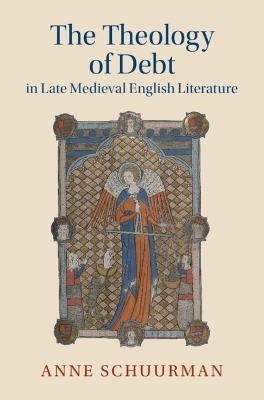
The Theology of Debt in Late Medieval English Literature
Seiten
2024
Cambridge University Press (Verlag)
978-1-009-38595-4 (ISBN)
Cambridge University Press (Verlag)
978-1-009-38595-4 (ISBN)
Beyond merely examining debt in Middle English texts, Anne Schuurman shows how medieval literature, particularly Chaucer and Langland, engenders capitalism, a system rooted in penitential theology. This title is part of the Flip it Open Programme and may also be available Open Access. Check our website Cambridge Core for details.
Exploring debt's permutations in Middle English texts, Anne Schuurman makes the bold claim that the capitalist spirit has its roots in Christian penitential theology. Her argument challenges the longstanding belief that faith and theological doctrine in the Middle Ages were inimical to the development of market economies, showing that the same idea of debt is in fact intrinsic to both. The double penitential-financial meaning of debt, and the spiritual paradoxes it creates, is a linchpin of scholastic and vernacular theology, and of the imaginative literature of late medieval England. Focusing on the doubleness of debt, this book traces the dynamic by which the Christian ascetic ideal, in its rejection of material profit and wealth acquisition, ends up producing precisely what it condemns. This title is part of the Flip it Open Programme and may also be available Open Access. Check our website Cambridge Core for details.
Exploring debt's permutations in Middle English texts, Anne Schuurman makes the bold claim that the capitalist spirit has its roots in Christian penitential theology. Her argument challenges the longstanding belief that faith and theological doctrine in the Middle Ages were inimical to the development of market economies, showing that the same idea of debt is in fact intrinsic to both. The double penitential-financial meaning of debt, and the spiritual paradoxes it creates, is a linchpin of scholastic and vernacular theology, and of the imaginative literature of late medieval England. Focusing on the doubleness of debt, this book traces the dynamic by which the Christian ascetic ideal, in its rejection of material profit and wealth acquisition, ends up producing precisely what it condemns. This title is part of the Flip it Open Programme and may also be available Open Access. Check our website Cambridge Core for details.
Anne Schuurman is Associate Professor of English at the University of Western Ontario. She is the author of Shame and Guilt in Chaucer (2012) and co-editor of An Epistle of Noble Poetrye (2022).
Introduction: Middle English debt and the spirit of capitalism; 1. Counterfeit money: Debt and form in the Middle English charter lyrics; 2. Secret debts: Credit and faith in the spendthrift knight romances; 3. Home economics: The marriage debt in The Wife of Bath's Prologue and Tale and The Merchant's Tale; 4. 'What is ynogh to mene': Measuring debt in Langland's Piers Plowman; 5. Piers Plowman and the inappropriable; Epilogue.
| Erscheinungsdatum | 09.01.2024 |
|---|---|
| Reihe/Serie | Cambridge Studies in Medieval Literature |
| Zusatzinfo | Worked examples or Exercises |
| Verlagsort | Cambridge |
| Sprache | englisch |
| Themenwelt | Literatur ► Klassiker / Moderne Klassiker |
| Geisteswissenschaften ► Geschichte ► Regional- / Ländergeschichte | |
| Geisteswissenschaften ► Sprach- / Literaturwissenschaft ► Anglistik / Amerikanistik | |
| Geisteswissenschaften ► Sprach- / Literaturwissenschaft ► Literaturwissenschaft | |
| ISBN-10 | 1-009-38595-X / 100938595X |
| ISBN-13 | 978-1-009-38595-4 / 9781009385954 |
| Zustand | Neuware |
| Haben Sie eine Frage zum Produkt? |
Mehr entdecken
aus dem Bereich
aus dem Bereich
Universalgelehrter, Polarreisender, Entdecker
Buch | Hardcover (2024)
mareverlag
28,00 €


